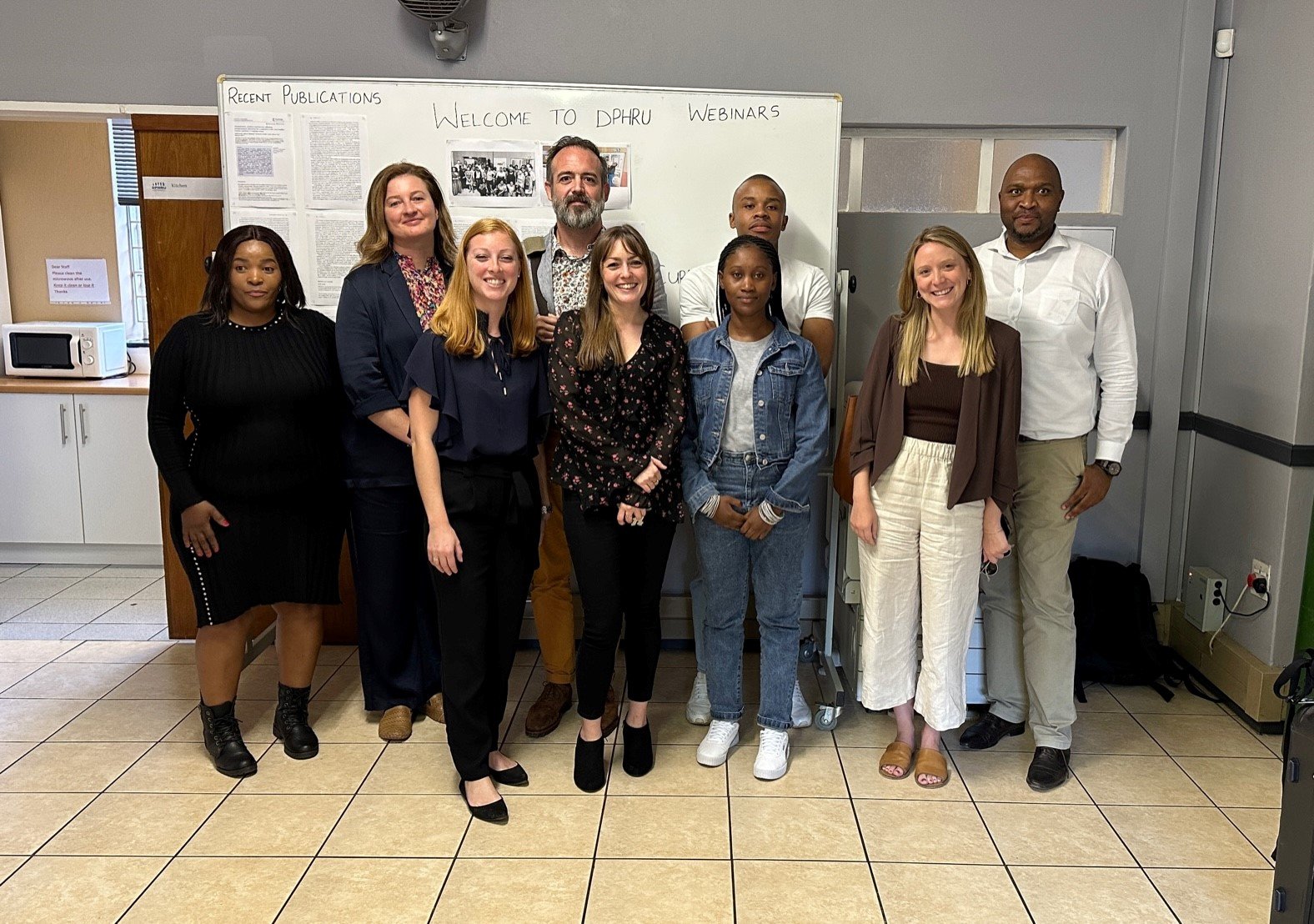|
COVID-19 (2022 Deadline)
Early child development during a global pandemic: Indirect effects of COVID-19 in South Africa
PI: Roisin Elizabeth Drysdale (roisin.drysdale@wits.ac.za), University of the Witwatersrand, South Africa
U.S. Partner: Chris Desmond, University of KwaZulu-Natal (funded by National Institutes of Health)
Project Dates: November 2022 - December 2023
Project Overview
 | | USAID, DSI and NAS staff visit Roisin Drysdale's team at DPHRU |
Evidence of the impact of pandemics and national responses to them on early child development and growth is limited, particularly on the important first 1,000 days of life. Available data from the United States, the United Kingdom, and China indicate that exposure to lockdown conditions is associated with delays in cognitive, motor, and language skills in infants at six months. Preliminary data from South Africa show similar findings, with additional evidence suggesting that infants exposed to strict lockdown conditions in-utero were more likely to be born at low birthweight. In order to mitigate these negative effects, maintain any improvements in child learning outcomes, and reduce future educational inequalities, there is a need to improve understanding of how the pandemic has affected child growth and development.
In this study, the PEER team assessed the extent to which the COVID-19 pandemic and the national response to it have affected early child development and growth among young children up to 2 years of age in South Africa. The researchers had already collected data from a cohort of infants aged 12 months who were exposed to lockdown conditions in-utero and born during the second wave of COVID-19 infections in South Africa. In this PEER study, the team followed up with the same infants at 24 months and recruited additional mother-infant pairs of similar age from routine health visits to increase the sample size. These infants spent much of their first 1,000 days living under lockdown conditions.
Final Summary of Project Activities
The project collected data on socio-demographic characteristics of the household, caregiver, and infant; child development; child feeding practices; clinic attendance; caregiver experiences of parenting through the pandemic; and household experiences of COVID-19 illness and death. Child development was measured through the Ages and Stages Questionnaire, Third edition (ASQ-3). The ASQ-3 identifies developmental delays among children aged from two months to five years in five domains (communication, fine motor, gross motor, personal-social, and problem solving). However, this tool is based on parent reporting. To limit bias, when able to, a trained data collector “tested” the infant on some of the questions to ensure the parent did not over-report. These can include, but are not limited to activities with a ball, a mirror, or some vocal activities. To capture the home environment and how it promoted young children’s development, researchers used the Home Screening Questionnaire (HSQ). This is a 30-item parent-report tool that measures features of the home environment related to child development.
The data from this as-yet unpublished study included findings on developmental delay risk levels and factors associated with such delays. Stunting, wasting, and food security issues were also highlighted. A high number of the caregivers reported that they faced challenges during the COVID-19 lockdown and stated that they struggled to parent due to financial issues or feeling sad or depressed. This is also evident in the maternal health questionnaire, with half the caregivers experiencing distress. Dr. Drysdale and her colleagues are continue to analyze the data and prepare manuscripts for publication.
This project was jointly supported by the South Africa Department of Science and Innovation (DSI).
Back to PEER COVID-19 Grant Recipients
|
|
|
|




